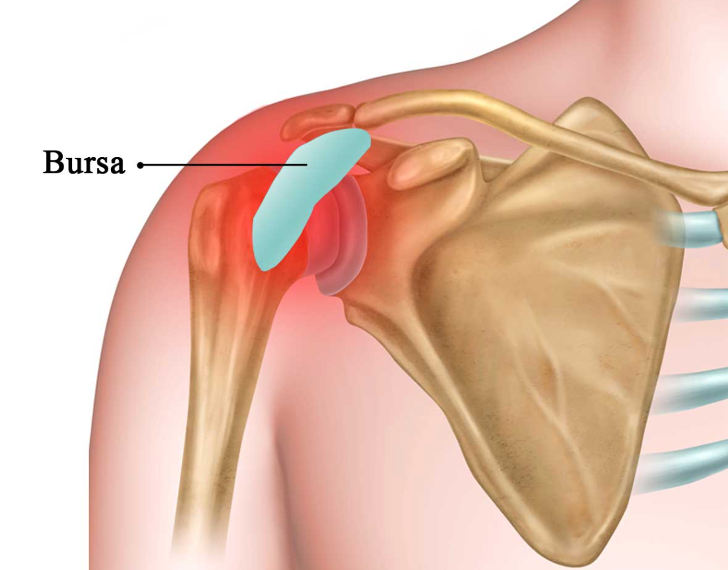You’ve probably heard that shoulder bursitis is caused by repetitive motions, overuse, or aging. But what if I told you there’s more to the story? Many people unknowingly trigger or worsen their bursitis through unexpected daily habits, hidden health conditions, and even stress-related muscle tension.
If you’ve been struggling with nagging shoulder pain and conventional treatments like painkiller or cortisone injection aren’t working, it’s time to look deeper. Here’s what most people don’t know about shoulder bursitis.


- Poor Posture is a Silent Aggravator
We live in a world where screens dominate our daily lives, and our posture suffers. Forward-rounded shoulders and a hunched upper back put unnecessary pressure on the bursa, the fluid-filled sac that cushions your shoulder joint. Over time, this leads to inflammation—even if you’re not doing repetitive overhead movements.
✅ Fix It: Make a habit of stretching your chest muscles and strengthening your upper back to counteract poor posture. Small changes, like adjusting your workspace ergonomics, can prevent chronic irritation.

- Stress & Anxiety Can Trigger Shoulder Bursitis
When you’re stressed, your body naturally tenses up. This muscle tightness, especially in the shoulders, can lead to inflammation of the bursa over time. Stress also increases cortisol levels, which can slow down the body’s natural healing process.
✅ Fix It: Incorporate stress management techniques like deep breathing, meditation, or yoga. Regular massage therapy can also help relieve muscle tightness that contributes to bursitis.

- Gut Health & Inflammation Are Connected
Believe it or not, gut health plays a significant role in inflammation throughout the body—including your shoulder bursa. Poor digestion, food intolerances, and gut imbalances can increase systemic inflammation, making you more susceptible to flare-ups.
✅ Fix It: Reduce inflammatory foods like processed sugars and unhealthy fats. Add probiotics and anti-inflammatory foods like turmeric and ginger to your diet.

- Shoulder pain isn’t always what it seems!
Many people assume they have bursitis when, in reality, it could be rotator cuff tendinitis, frozen shoulder, or even a pinched nerve in the neck. While these conditions share similar symptoms, bursitis tends to have shifting pain patterns, varying levels of discomfort throughout the day, and even nighttime pain that disrupts sleep.
✅ Fix It: If your pain isn’t improving, it’s worth getting an ultrasound or MRI to rule out other conditions. Acupuncture and physiotherapy can help reduce inflammation, relieve pain, and restore mobility—so you can get back to moving freely!

- Your Sleeping Position Might Be Making It Worse
Are you a side sleeper? If so, you could be compressing your shoulder bursa every night without realizing it. Even if your mattress is soft, prolonged pressure on your shoulder can lead to increased inflammation and discomfort.
✅ Fix It: Try sleeping on your back or use a supportive pillow to cushion your shoulder and reduce pressure.
Take a Holistic Approach
Shoulder bursitis isn’t just an overuse injury—it’s often a result of multiple lifestyle factors. By addressing treatment approach, posture, stress, diet, and sleep, you can manage and even prevent chronic flare-ups. Don’t just treat the symptoms—fix the root causes.
We loved to discuss your situation with you in details and chat about how we can help you feel your best.
Recover faster with Happipuncture.




